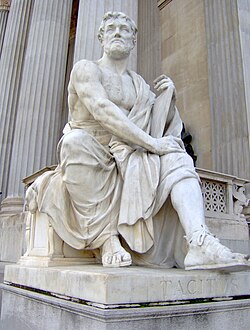Tacitus Quote
Related Quotes
It is better to stay single and wait for the one that makes sense then to marry someone that makes absolutely no sense. The moment you settle is when the one person that makes all the sense in the wor...
Shannon L. Alder
Tags:
accountability, anger, arranged marriages, bitter, choices, civil union, confidence, confused, dating, devil
The devil can get you through your flesh. He knows the button to press on your flesh and have a way into your mind. The flesh becomes a transport medium for evil things if not killed for God. If Chris...
Israelmore Ayivor
Tags:
arcbishop, bishop, christ, devil, evangelism, evil, evil thoughts, flesh, food for thought, israelmore ayivor
They may take you for a fool, promise to shower you with the world, use their canny devastating tongue to manipulate and dominate your mind, but its better to put them bulshit people at arms length ra...
Michael Bassey Johnson
Tags:
absurdity, arms length, cheating, cheating on someone, con, distrust, fake, fake people, falsification, full stop
About Tacitus
Publius Cornelius Tacitus, known simply as Tacitus ( TAS-it-əs, Latin: [ˈtakɪtʊs]; c. AD 56 – c. 120), was a Roman historian and politician. Tacitus is widely regarded as one of the greatest Roman historians by modern scholars.
The surviving portions of his two major works—the Annals (Latin: Annales) and the Histories (Latin: Historiae)—examine the reigns of the emperors Tiberius, Claudius, Nero, and those who reigned in the Year of the Four Emperors (69 AD). These two works span the history of the Roman Empire from the death of Augustus (14 AD) to the death of Domitian (96 AD), although there are substantial lacunae in the surviving texts.
Tacitus's other writings discuss oratory (in dialogue format, see Dialogus de oratoribus), Germania (in De origine et situ Germanorum), and the life of his father-in-law, Agricola (the general responsible for much of the Roman conquest of Britain), mainly focusing on his campaign in Britannia (De vita et moribus Iulii Agricolae). Tacitus's Histories offers insights into Roman attitudes towards Jews, descriptions of Jewish customs, and context for the First Jewish–Roman War. His Annals are of interest for providing an early account of the persecution of Christians and one of the earliest extra-Biblical references to the crucifixion of Jesus.
The surviving portions of his two major works—the Annals (Latin: Annales) and the Histories (Latin: Historiae)—examine the reigns of the emperors Tiberius, Claudius, Nero, and those who reigned in the Year of the Four Emperors (69 AD). These two works span the history of the Roman Empire from the death of Augustus (14 AD) to the death of Domitian (96 AD), although there are substantial lacunae in the surviving texts.
Tacitus's other writings discuss oratory (in dialogue format, see Dialogus de oratoribus), Germania (in De origine et situ Germanorum), and the life of his father-in-law, Agricola (the general responsible for much of the Roman conquest of Britain), mainly focusing on his campaign in Britannia (De vita et moribus Iulii Agricolae). Tacitus's Histories offers insights into Roman attitudes towards Jews, descriptions of Jewish customs, and context for the First Jewish–Roman War. His Annals are of interest for providing an early account of the persecution of Christians and one of the earliest extra-Biblical references to the crucifixion of Jesus.
